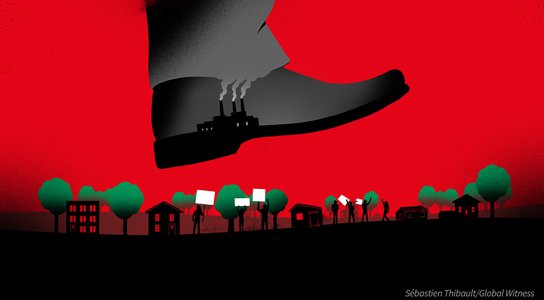Last week the European Union kicked off its “Green Week” under the banner “a new beginning”. Today’s far less trumpeted “Energy Infrastructure Forum” - a platform for the already extremely loud energy industry - will give a truer picture of just how serious the EU is in fighting climate change. After yet another summer of devastating forest fires, floods and deadly heat waves, a new beginning is needed more than ever. But sadly the substance looks like more of the same; particularly if the EU carries on down a path of promoting and financing fossil gas.
There appears to be a deep contradiction at the heart of EU climate policy. On the one hand, the Commission President is talking up the “ambitious target of a 55% reduction in emissions by 2030, working towards “climate neutrality” by the mid-century”. Yet at the same time changes to EU energy policy are heading towards an outcome that, being kind, are less than ambitious.
Nowhere is this more true than with a critical piece of regulation that is currently under review, with new proposals expected before the end of this year. The Trans-European Networks for Energy (TEN-E) Regulation provides the framework for linking energy infrastructure right across the EU’s 4.476 million km². In its current format TEN-E is not just unhelpful in the fight against climate change; it is very much part of the problem.
Unbelievably this regulation still provides EU backing and taxpayer subsidy for fossil fuel infrastructure right across Europe. Despite concerned Europeans all over the continent demanding more action on the climate it is a grotesque irony that it is their hard-earned - and much needed - taxes that are being used to fuel the climate crisis.
So given the laudable words espoused by the Commission President and ambitious targets you’d think any review of TEN-E would end this obsession with fossil fuels. Sadly, it appears not. This is because the EU seems intent on continuing to support fossil gas - with oil and coal now out of vogue, it’s invisible but equally harmful sibling is seeping its way to the top of the EU’s energy pile.
So what’s wrong with fossil gas? In the EU, carbon dioxide emissions from fossil gas have now exceeded those from coal. Globally, emissions are rising with fossil gas accounting for over 50 per cent of the increase in global greenhouse gas emissions since 2016. Methane - part of fossil gas that leaks into the atmosphere - is 86 times more potent than carbon dioxide over a twenty-year period and has driven over a quarter of total global warming to date. That’s what’s wrong with fossil gas.
Of course it is the fossil fuel industry trying to paint gas as the low-carbon, clean alternative to oil and coal, who are now pinning their hopes for the long-term survival - and profitability - of the sector on making the world reliant on gas. And it seems unfortunately the European Union is falling for this myth.
But this should come as no surprise when you consider just how much influence this industry has within the EU. Our recent report exposed the role of ENTSO-G, a group of powerful gas companies, who incredibly are entrusted to set the very policy they stand to benefit from. We found they have continually overestimated forecasts of Europe’s gas needs, resulting in almost 90 percent of EU money for gas projects having gone to projects these companies are involved in.
How is this absurd conflict of interest possible? TEN-E. The TEN-E regulation enshrines into EU law the influence of these powerful fossil fuel companies to shape how EU energy money is spent. All over the world it's a similar story. Fearing for their survival fossil fuel companies are clinging on to wealth and influence by peddling lies about fossil gas. But it’s the world, and its inhabitants we should be saving, not fossil fuel profit margins.
A revised TEN-E policy that doesn’t explicitly rule out fossil gas and at the same time curb the influence of the fossil fuel industry makes a mockery of the EU’s climate targets. Last year the European Investment Bank committed to phase out financing all fossil fuels, including gas. This is the standard that TEN-E must follow.
It’s time for the policy to match the rhetoric. A new beginning can’t happen without a break from the past and the revision of TEN-E is the most immediate test of just how serious the EU is in averting the pending climate disaster.


